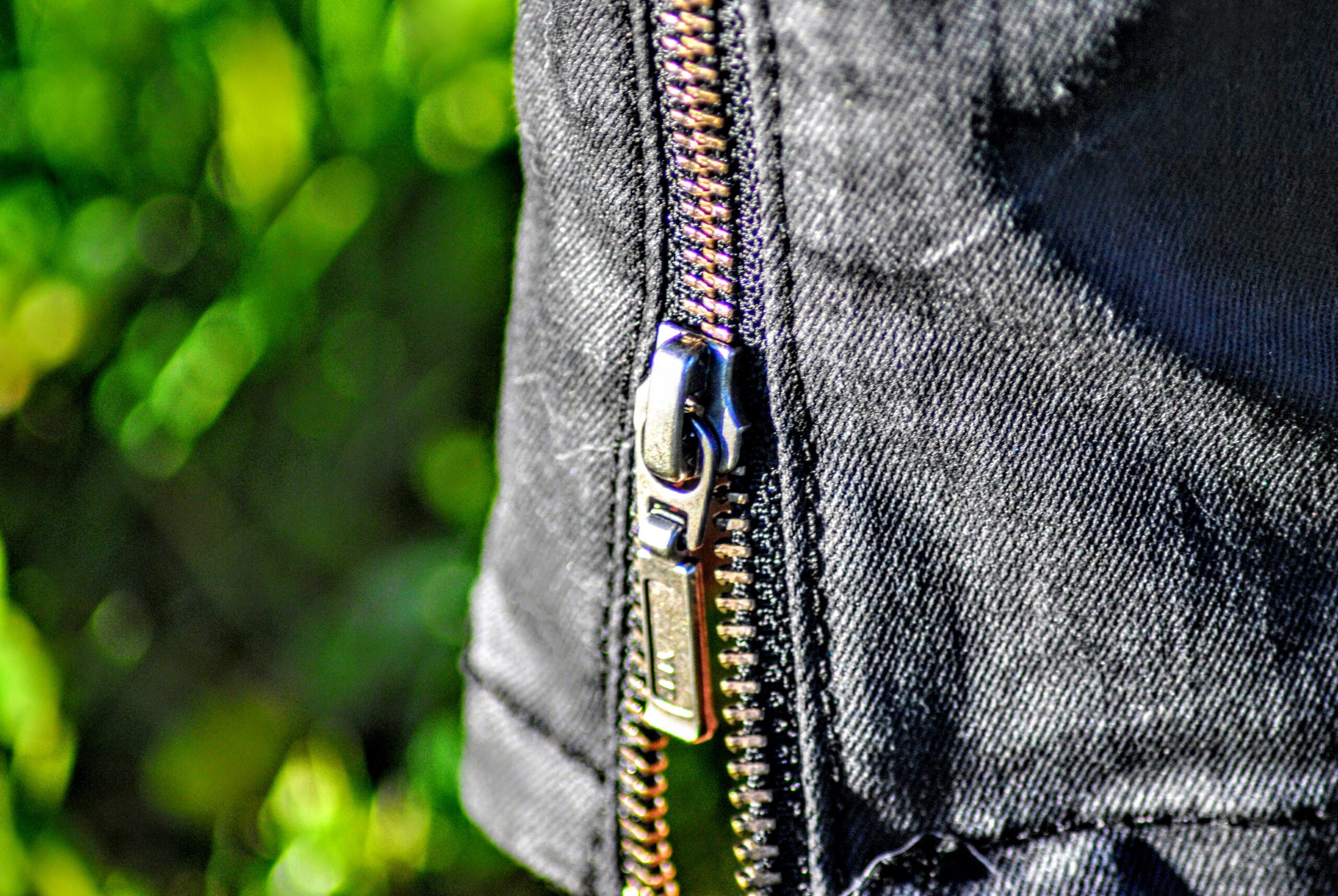A zipper that won’t close properly can feel like a small inconvenience—until it stops a marine cover installation, delays a PPE delivery, or halts a production run. In industrial, outdoor, and OEM manufacturing, zipper failure isn’t cosmetic—it’s operational. When teeth refuse to close, performance, safety, and reliability are all at risk.
At LenZip, a U.S.-owned zipper manufacturer with in-house engineering and testing, we’ve spent decades studying why zippers fail and how to prevent it. Whether you build marine covers, tactical packs, protective gear, or technical upholstery, understanding zipper mechanics helps you decide when a repair will hold—and when replacement is the smarter, long-term solution.
Understanding the Zipper Mechanism
A zipper looks simple but functions as a precision-engineered closure. When the slider moves, it forces alternating teeth (or coils) together in a tight, interlocking sequence. Any deformation in that sequence—slider fatigue, misaligned tape, corrosion, or contamination—can prevent full engagement.
Every zipper relies on four key components that must work in sync:
the teeth or coil, the slider, the woven tape, and the interlocked chain.
If one element loses alignment or strength, the whole system fails.
Modern zipper testing follows ASTM D2061 tensile and fatigue standards to ensure durability and consistency across thousands of open-close cycles. These performance metrics form part of LenZip’s zipper testing standards, ensuring OEM-grade reliability from design to deployment.
For a full component overview, see our Guide to Zipper Teeth, Sliders, and Their Parts.
Why Zipper Teeth Fail to Close
Most zipper failures can be traced to a few predictable causes:
Slider Wear or Stretching
Over time, tensile stress widens or deforms the slider. Once the compression between the upper and lower plates weakens, teeth glide through instead of locking together.
Misaligned or Damaged Teeth
Off-angle pulling, fabric distortion, or over-tension can shift teeth out of position. Even one misaligned segment disrupts closure across the full chain.
Contamination
Dust, sand, salt, or grease trapped inside the slider track raises friction and prevents full engagement. Cleaning is essential for zippers in marine or outdoor settings.
Tape Distortion or Shrinkage
Heat, moisture, and chemical exposure can warp zipper tape. When the base fabric twists or contracts, teeth misalign and closure fails.
Corrosion
Oxidation—especially in marine or industrial applications—causes metal fatigue and slider binding. LenZip’s corrosion-resistant finishes and ASTM B117 salt-spray testing help prevent this kind of degradation.
For maintenance tips that prevent these issues, visit Zipper Maintenance & Care or read about Nylon vs. Polypropylene for Marine & More.

How to Fix a Zipper That Doesn’t Close
When a zipper fails in the field, a careful, step-by-step approach can often restore short-term function.
- Inspect the Slider – Look for widening, corrosion, or rough edges.
- Re-compress the Slider – Using narrow pliers, gently tighten both sides to restore proper tension.
- Clean the Chain and Slider Path – Wash with mild soap and water or apply zipper lubricant to remove debris.
- Realign Teeth – Ensure the chain isn’t twisted and that both sides of the tape sit evenly.
- Test Under Light Load – Open and close several times to confirm smooth engagement.
If the teeth still fail to mesh or the slider won’t maintain pressure, it’s time to replace the assembly. For field-critical applications such as industrial covers, PPE, or marine enclosures, replacement is safer than repeated adjustments.
Learn more about performance validation in our Zipper Testing Standards.
When to Replace Instead of Repair
Some failures can’t be safely repaired. Replace the zipper if you observe:
- Missing or broken teeth that prevent full chain engagement
- Tape tearing, delamination, or severe fabric distortion
- Corroded or permanently stretched sliders
- Fatigue cracking from extended use or high-cycle exposure
LenZip designs and produces heavy-duty U.S.-made zippers for industrial, outdoor, and marine applications—engineered to exceed ASTM, NFPA, and MIL-SPEC requirements. Explore LenZip Custom Coverall Zippers or our guide to Finding Industrial-Strength Zippers for Any Project.
Preventing Future Failures
A few best practices can extend zipper life dramatically:
- Regular Cleaning: Rinse off salt, dirt, and debris with fresh water and mild detergent.
- Lubrication: Apply an approved zipper lubricant to maintain low friction.
- Proper Handling: Avoid bending or pulling off-axis; align tension along the chain.
- Material Selection: Choose UV-stable and corrosion-resistant materials at design stage.
Learn more at Zipper Maintenance & Care or explore finish options in Zipper Materials & Finishes.
Build It Right, So It Lasts Longer
Zippers fail not by chance but by physics—misalignment, contamination, or fatigue. The key to durability is precision engineering and preventive care. With decades of domestic manufacturing expertise, LenZip designs closures that endure harsh use, environmental stress, and mechanical repetition without failure.
Don’t settle for temporary fixes. Request a quote from LenZip to source or design zippers engineered for long-term performance, tested for strength, corrosion, and fatigue—all built in the USA.

FAQ: Zipper Teeth Not Closing
Why won’t my zipper teeth close properly?
Wear, contamination, or slider fatigue prevents teeth from locking. Cleaning and re-compression may help, but replacement is often necessary for lasting results.
Can I fix a broken zipper without replacing it?
Minor alignment issues can be corrected by adjusting the slider and cleaning debris. However, damage to the tape or chain requires a new zipper.
What causes a zipper slider to stop working?
Metal fatigue, corrosion, or over-tension can deform the slider, reducing its ability to pull teeth together.
How can I prevent zippers from separating?
Keep zippers clean, lubricated, and free from salt or dirt. Use UV- and corrosion-resistant materials for outdoor or marine products.
Do. es LenZip make replacement zippers for industrial or marine use?
Yes. LenZip manufactures heavy-duty replacement zippers for marine, industrial, outdoor, and PPE applications—built for high-stress environments.
Bring closure to zipper problems by designing reliability from the start. Partner with LenZip to ensure your products stay secure, functional, and built to last.
